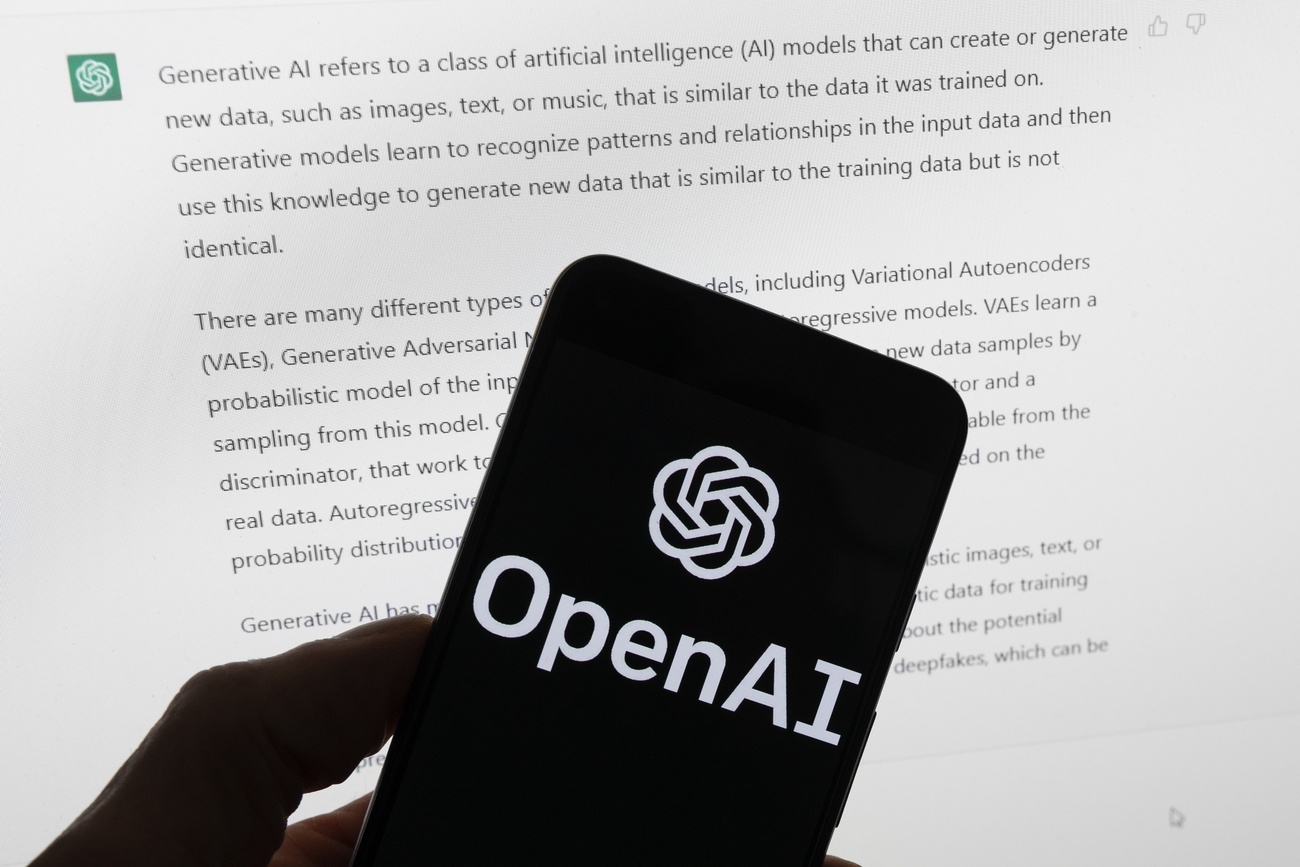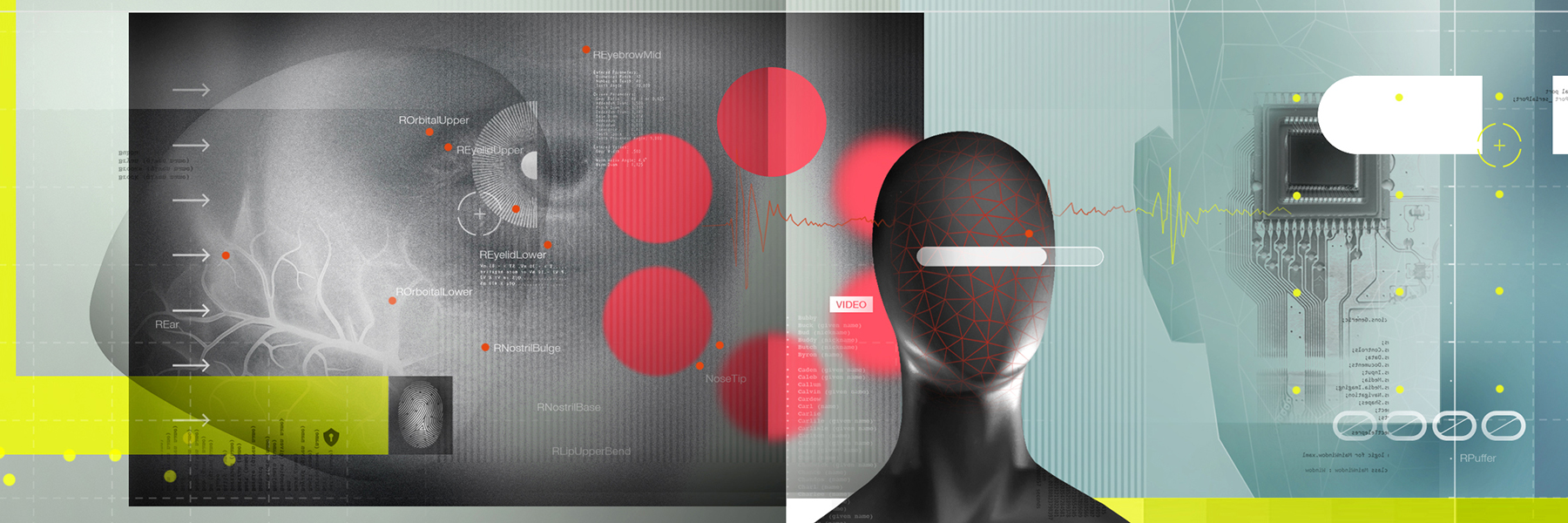How artificial intelligence will impact the work environment

The influence of artificial intelligence (AI) on work processes is growing rapidly, while there is a shortage of skilled labour in Switzerland and the EU. How will this combination affect the labour market and inflation in the long term?
No, this text was not written by an AI. But it could soon be. Artificial intelligence is making rapid progress.
+ Why Switzerland needs more workers from abroad
Not only could journalistic texts be written by computers in the future, but many other tasks will soon no longer require humans: for example, photo editing, stocktaking and bookkeeping.
In the SWI swissinfo.ch podcast Geldcast, we spoke to economist Jan-Egbert Sturm from the Economic Research Centre at the federal technology institute ETH Zurich and asked, among other things: will there soon be fewer jobs?
Baby boomers retiring
In the short term, the answer is no – at least for Switzerland. Because something else is happening on the domestic labour market at the same time. Something that has never happened before in the recent past. According to calculations by Patrick Eugster, a self-employed economist and financial market expert, a net 30,000 workers will soon be leaving the Swiss labour market – every year.
The reason: the baby boomers born between 1959 and 1964 are retiring. And these people will only be partially replaced by young and foreign workers.
More
The bottom line is that there is a shortfall on the labour market. There is a shortage of skilled labour – and not just in Switzerland. There is currently a similar trend in the eurozone.
This labour shortage is reflected in unemployment figures. These are still at a very low level, despite the very sharp interest rate hikes by central banks in recent years.
In Switzerland, the unemployment rate is currently 4.2%, according to the international definition (2% according to the Swiss definition), 3.7% in the US and 6.5% in the eurozone. This is very low by historical standards.
The labour shortage is good news for employees: they are gaining bargaining power vis-à-vis employers.
In the medium term, this will lead to higher wages, write economists Charles Goodhart and Manoj Pradhan, for example, in their bestselling book The Great Demographic Reversal. They expect inflationary pressure to remain high in the coming years.
Opposing influences
However, artificial intelligence counteracts this inflationary pressure; it weakens the position of employees in the short term.
Anyone who can be replaced by a computer will hardly expect to push through a wage increase. This makes the production of goods and services cheaper, reducing inflationary pressure.
But which effect will dominate? Will prices continue to rise because labour is becoming scarce? Or will prices even fall in future because more and more can be done by computers?
The answer is not that clear, says Jan-Egbert Sturm in the SWI swissinfo.ch Geldcast. In the long term, central banks will be able to keep inflation close to the target value.
In the short and medium term, however, this task will become more difficult because even central banks will not know in real time which factor will dominate at any given time.
AI conclusion
Conclusion: artificial intelligence is accelerating change in the world of work. At the same time, the labour market is facing a potential shortage of skilled workers.
The entry of boomers into retirement age reinforces this challenge and strengthens the position of employees.
At the same time, AI is increasingly taking over tasks and weakening the position of employees. However, the long-term impact on inflation remains uncertain.
And yes, the conclusion was written by AI. But only in part: it was not (yet) possible without the author’s revision.
Author Fabio Canetg completed his doctorate in monetary policy at the University of Bern and the Toulouse School of Economics. He currently teaches on the economics Master’s programme at the University of Neuchâtel and is also a MAS lecturer at the University of Bern. As a journalist, he works mainly for Swiss radio and television and SWI swissinfo.ch. He hosts the monetary policy podcast “Geldcast” and the financial podcast “Börsenstrasse Fünfzehn”

More
The ethics of artificial intelligence

In compliance with the JTI standards
More: SWI swissinfo.ch certified by the Journalism Trust Initiative












You can find an overview of ongoing debates with our journalists here . Please join us!
If you want to start a conversation about a topic raised in this article or want to report factual errors, email us at english@swissinfo.ch.